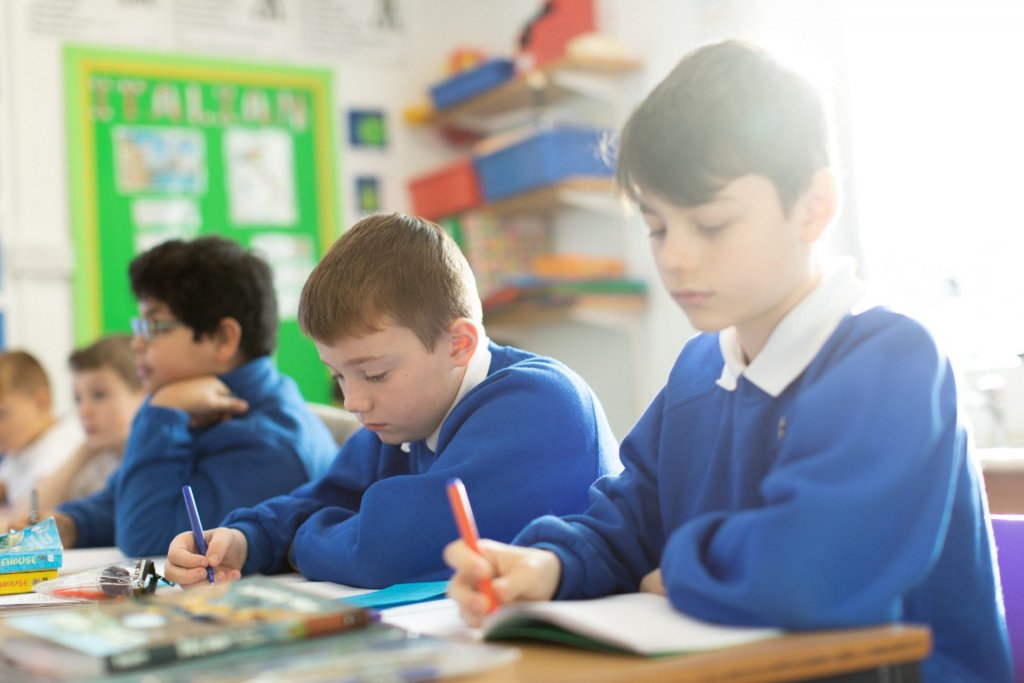Our Curriculum
At Staverton, we are striving for a curriculum without walls, ceilings or boundaries. Our vision of being a life-giving tree is the starting point of our learning. We want children to develop a strong and deep vocabulary and conceptual understanding across many subjects over time. We are striving to enhance children’s long-term memory and skills so they can apply their knowledge in different ways.
Our core principles for learning:
1. Building knowledge
Knowledge is the foundation of our curriculum and paves the way for creativity, enabling students think critically and shape new ideas. Lessons are planned to develop knowledge, increase conceptual understanding and make connections with prior learning.
2. Developing language
We place a strong emphasis on identifying, exploring and absorbing new vocabulary. Children are immersed in a language-rich environment, with a particular emphasis on high-quality children’s literature, rich in vocabulary, meaning, and opportunities for deeper understanding.
3. Discovering purpose
Our school ethos encourages children to live their lives according to the school’s values and principles. Through teaching children a variety of disciplines, our aim is that children will discover a strong sense of purpose and personal vision for the future.
We are an inclusive school that provides every child access to a broad and balanced education. Children’s individual needs are taken into account when planning and delivering the curriculum to make it accessible to all. Our aim is to ensure all children are supported to become confident, independent and reflective learners. Our curriculum promotes children’s Spiritual, Moral, Social and Cultural development, ensuring that they are considerate and responsible citizens. Fundamental British Values are actively promoted in order to prepare the children for life in modern Britain.
4. Exploring narrative
As a story-centred school, Staverton recognises narratives are fundamental in sharing meaning and developing a sense of the world. We value and emphasise reading and literature as central to our culture and ethos. We invest in high-quality books and make time for reading and sharing stories each and every day.
Foundation stage curriculum
In Reception, children’s learning is based on the Foundation Stage curriculum. There are 7 areas of learning: Communication and Language; Physical; Personal, Social and Emotional; Literacy; Mathematics; Understanding the World; Expressive Art and Design. There is a strong emphasis on the development of reading and we value hands-on learning across the curriculum both in and outside the classroom. Staff assess the children and use this information to plan for the learning opportunities they provide. Parents actively contribute to this process which is recorded on Tapestry.
How we deliver and implement our curriculum:
- By maintaining high expectations for knowledge and vocabulary, we ensure students achieve excellence in every lesson.
- We have a strong focus on the outcomes that children produce in each lesson as we recognise the link between practising and securing new ideas through repetition and rehearsal. We have a culture that prizes quality of work and pride in presentation.
- Staff carefully model and demonstrate processes, skills and techniques as well as high quality presentation so that children can develop an understanding of how to apply their new learning.
Measuring the impact
Our curriculum’s impact is evident in the secure knowledge, skills, and language our students develop, fully preparing them for the transition to secondary school and beyond. The impact of the curriculum is also more widely evaluated through end of Key Stage statutory assessments, governor monitoring visits, external partnership visits and monitoring of teaching, learning as well as pupil voice. School self-evaluation is also focused on the impact of our curriculum.
Teacher assessment is used across all year groups in the school and is a professional judgement based on:
- Pupil book study (monitoring planning, pupil book observations and discussions with pupils)
- Observation of learning through learning walks and coaching trios
- Comparative discourse (internal and external moderation of a range of subjects)
Find out more!
If you would like to know more about our curriculum, then please take a closer look at our curriculum pages on this website. The class pages also have a helpful summary of the learning for the term. If you require further information, then please send an email to admin@staverton.wilts.sch.uk so that we can direct you to the appropriate subject lead.
